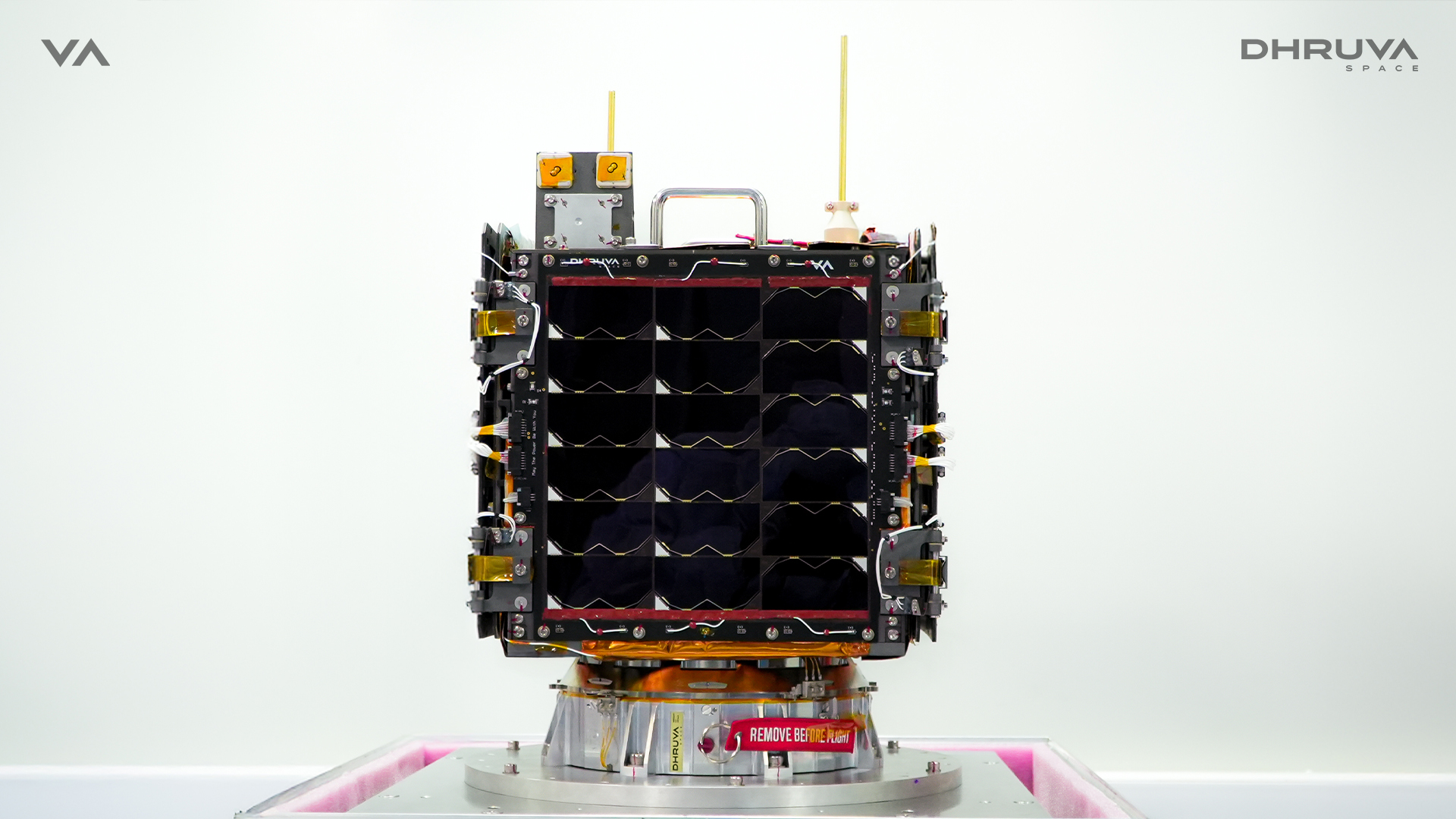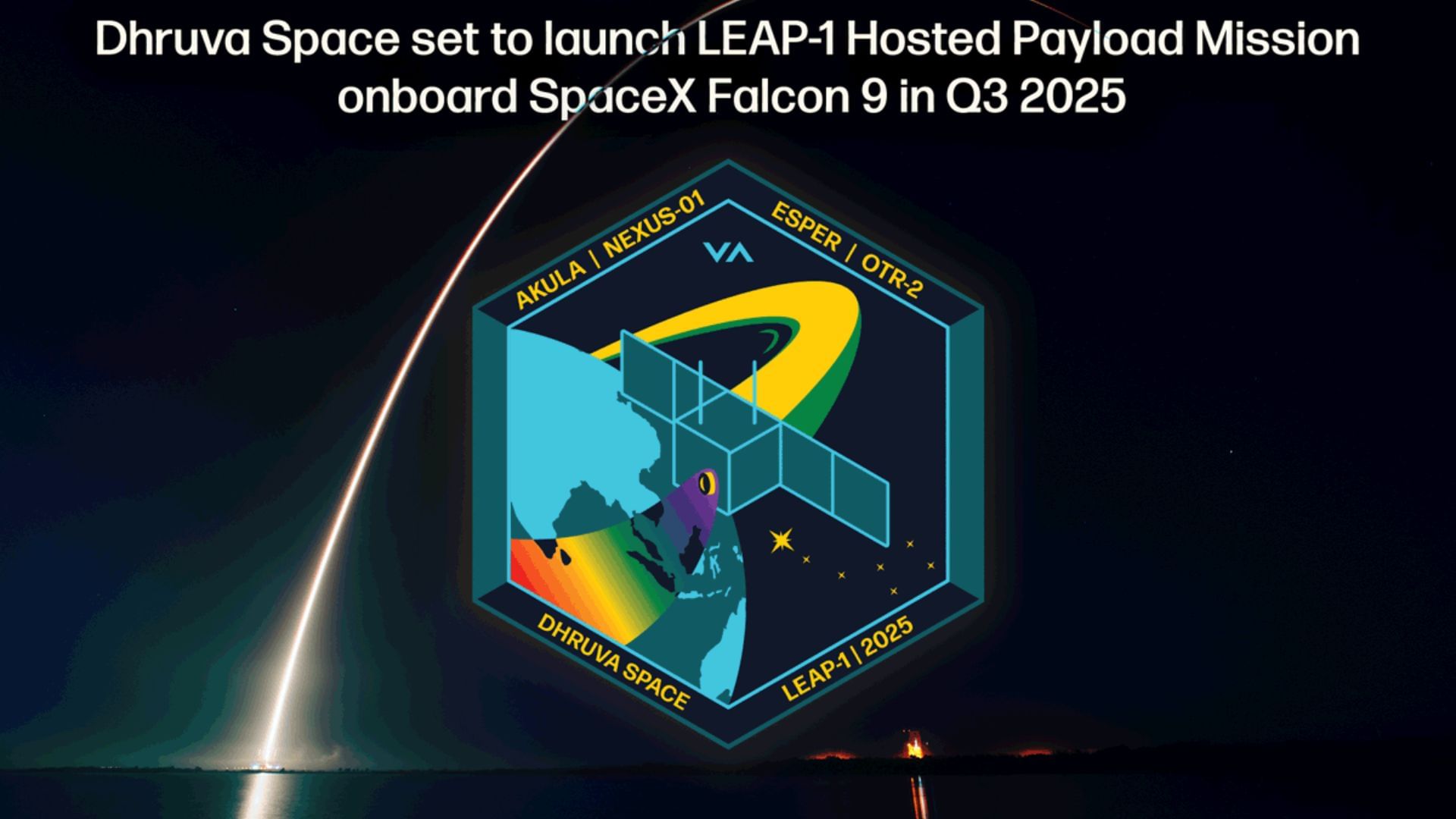New Delhi: Hyderabad-based New Space startup Dhruva Space has announced that it will be launching its LEAP-1 satellite on a SpaceX Falcon 9 rocket in Q3 2025. The satellite has a pair of hosted payloads for private Australian companies Akula Tech’s Nexus-01 AI module and Esper Satellites’ OTR-2 hyperspectral imager. The LEAP-1 satellite is the first commercial mission for Dhruva Space. Dhruva Space will be providing real-time mission management and downlinking of the data from the payloads.

The LEAP-1 satellite. (Image Credit: Dhruva Space).
CEO and Cofounder of Dhruva Space, Sanjay Nekkanti says, “Following a successful qualification of the P-30 onboard ISRO’s PSLV-C58, Dhruva Space is excited to take its indigenously-developed P-30 satellite platform to global market. We are confident this multilateral, collaborative approach drives innovation, brings down costs, and invests in commercial capabilities to grow the business opportunities that can serve other customers and further foster a global Space economy. Teaming up with our commercial partners in Australia creates remarkable opportunities for Indo-Australian Space business, which will, in turn, foster a long-term partnership. India is already a key economic and regional partner and we see this mission symbolic of India’s status as a fast-growing Space program. We are also happy to share that our LEAP series of hosted payload missions continues to thrive, and we are observing traction from private Space players in India, Italy, France, and more.”
The P-30 platform
Dhruva Space had previously demonstrated its satellite bus during the LEAP-TD mission on board the POEM-3 platform during the PSLV-C58 flight in January 2024. The P-30 platform is moduler and payload-agnostic, and has a wide range of applications across defence, disaster response, agriculture, mining and environmental management sectors. The mission patch symbolises the synergy of collaboration between three countries, India, Australia and America. A delegation of startups from Australia visited Dhruva Space following a visit by the head of the Australian Space Agency, Enrico Palermo.
